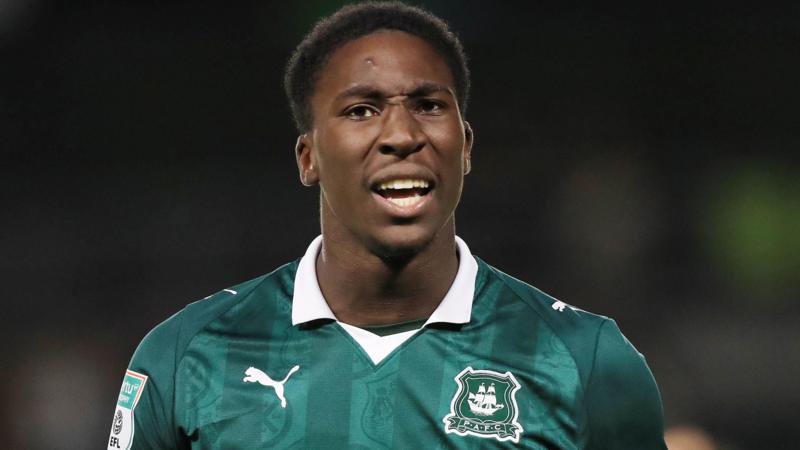Argyle Slams Shocking Racial Abuse Targeting Player Pepple




In an unfortunate reflection of the persistent issue of racism in football, Plymouth Argyle striker Aribim Pepple was subjected to racial abuse online following his team’s recent home match against Cheltenham in the EFL Trophy. The young Canadian forward, who has been showing promising signs since his arrival at the club, found himself the target of abhorrent messages over social media platforms shortly after the game concluded.
Plymouth Argyle, a club known for its strong community ethos and supportive fan base, was quick to respond to the incident. In a firm statement released on their official channels, the club expressed their condemnation of the racial abuse directed at Pepple, reiterating their zero-tolerance policy towards any form of discrimination. The club is now working closely with the authorities to trace the origins of these messages and is committed to taking all necessary steps to support Pepple during this distressing time.
Racial abuse in football is a deep-seated issue that continues to mar the beautiful game. Despite numerous initiatives by football governing bodies like FIFA, UEFA, and domestic leagues to combat racism, the prevalence of such incidents remains a stark reminder of the challenges that lie ahead. The anonymity afforded by social media platforms often emboldens individuals to express vile sentiments without immediate repercussions, complicating efforts to eradicate this menace from the sport.
Aribim Pepple’s ordeal is especially disheartening considering his rising trajectory in football. Born in Calgary, Alberta, Pepple has ventured a long way from home to pursue his football aspirations in the United Kingdom. His journey reflects the dreams of countless young athletes worldwide who aspire to carve out professional careers in competitive leagues overseas. Encounters with racism not only tarnish these dreams but also pose serious questions about the inclusivity and spirit of the sport.
Plymouth Argyle’s proactive stance in this situation highlights the importance of active involvement by clubs to protect their players. Clubs across all levels of professional football are increasingly recognizing their role in safeguarding athletes from abuse, both on and off the field. This involves education, rigorous enforcement of anti-discrimination policies, and collaboration with fans to foster a more welcoming environment at matches.
Moreover, the swift condemnation and supportive actions by Plymouth Argyle serve as a potential blueprint for other clubs facing similar issues. The football community must stand united in ensuring that players, regardless of their background or ethnicity, feel safe and valued. Public statements are crucial, but they must be backed by persistent efforts and real change, encompassing all stakeholders in the sport from fans and players to officials and sponsors.
Beyond the clubs and football authorities, fans too have a pivotal role to play. They create the atmosphere in the stadiums and can significantly influence the culture around the sport. Positive fan initiatives and peer policing of racist behavior during games are essential in creating deterrents for potential abusers. Educating fans about the impact of their words and actions can lead to more empathetic spectatorship and a rejection of racism in any form.
The road to eradicating racism from football is undoubtedly long and fraught with challenges. However, incidents like the abuse faced by Aribim Pepple serve as critical reminders of the work that remains to be done. It is imperative for everyone involved in football—from individual fans to large governing bodies—to rally together in the fight against discrimination. Through collective action and unwavering commitment to respect and equality, the dream of a truly inclusive football culture remains within reach. Always remember, it is not just about penalizing the wrong, but also about promoting and celebrating the right, ensuring football remains a sport loved and respected by all.